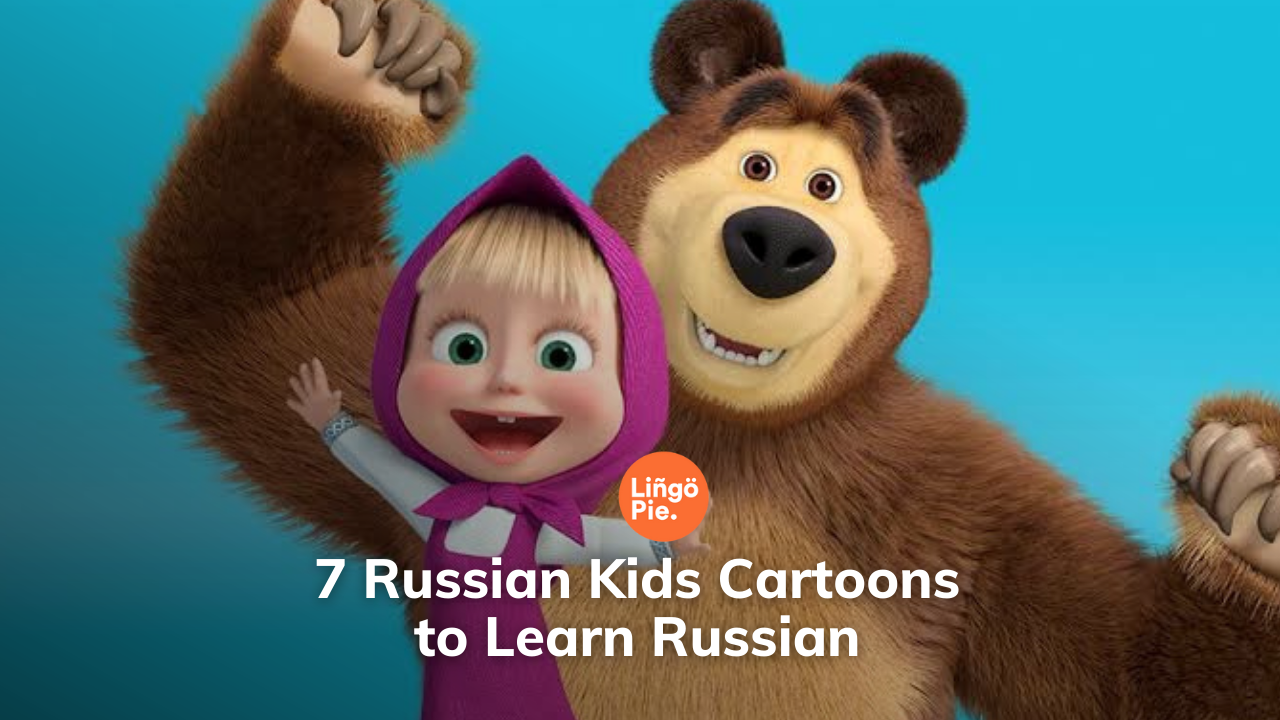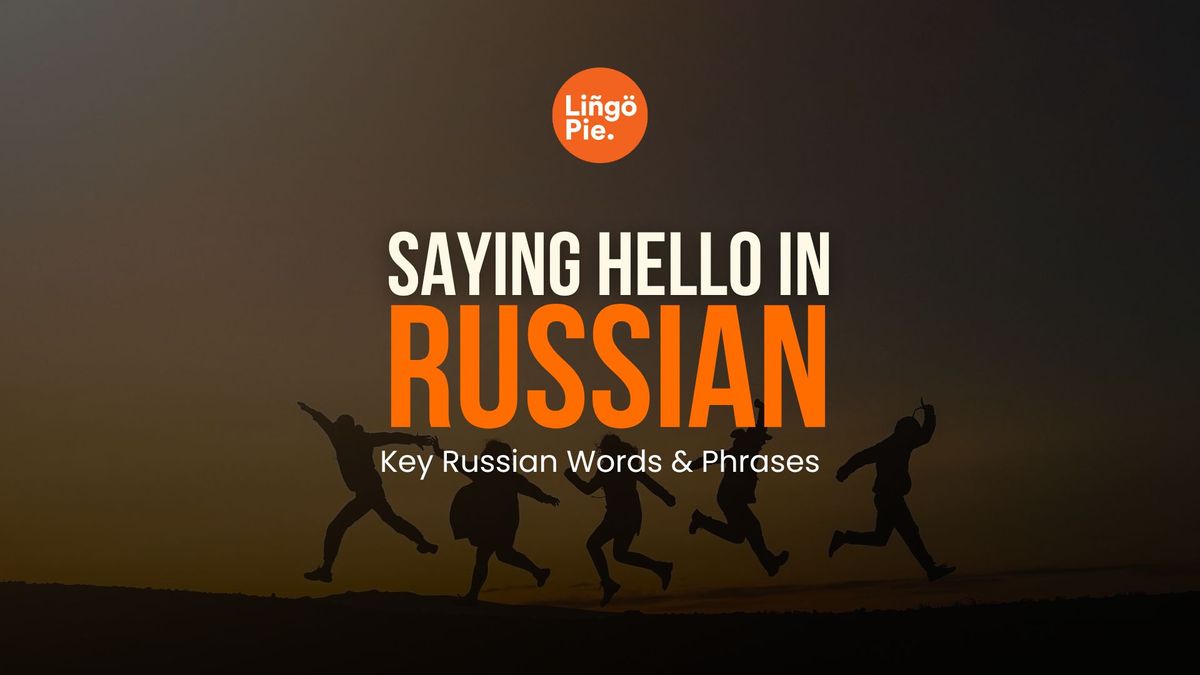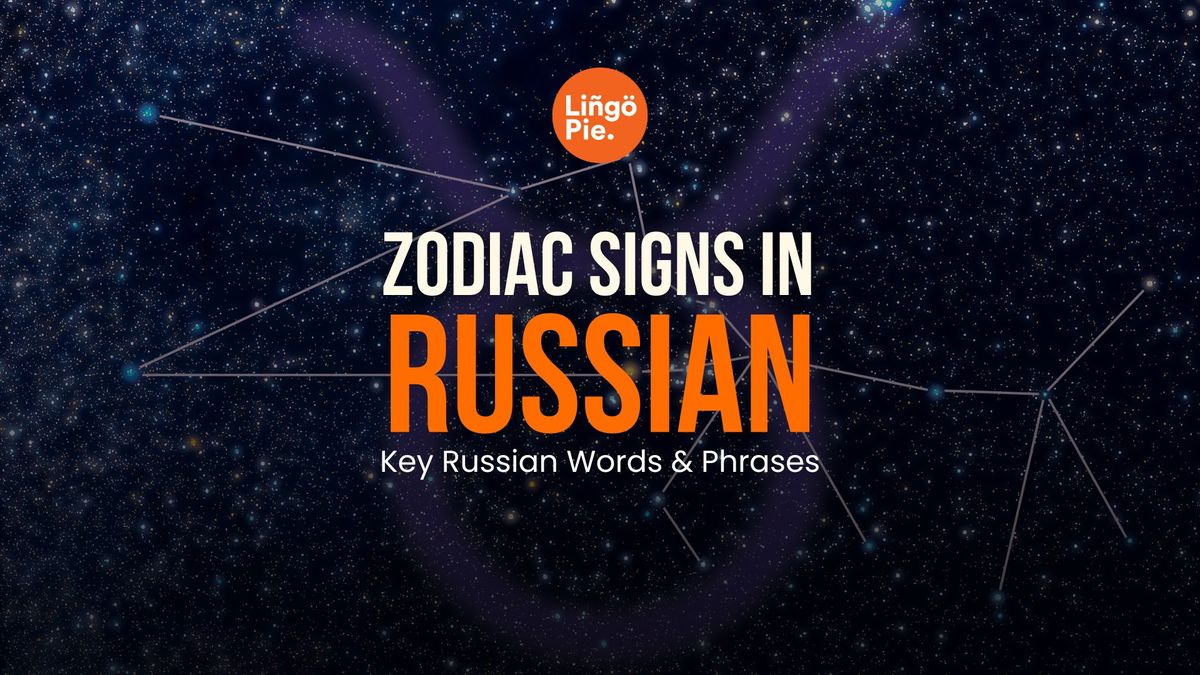Ever wondered how saying “hello” can differ so much around the world? In Russia, your choice of greeting can reveal a lot about your relationship with someone.
When I first started learning Russian, I was surprised by the variety of ways to say "hello" and how each choice influences the conversation. It’s not just about words—it’s about context and culture.
In this post, you'll learn how to say hello in Russian, from the casual Привет (Privet) to the formal Здравствуйте (Zdravstvuyte). I’ll give you pronunciation tips, usage examples, and cultural insights to help you greet people in Russian with confidence!
- Best Apps To Learn Russian
- Best TV Series To Learn Russian
- What Is The Best Way To Learn Russian On Your Own?

How To Say Hello In Russian?
In Russian, there are two main ways to say "hello" depending on the level of formality:
For casual settings or when speaking with friends, you would use "Привет" (Privet), which is similar to saying "hi" in English. It's informal and perfect for conversations with people you're comfortable with.
On the other hand, for more formal situations or when addressing someone you don't know well, the appropriate greeting is "Здравствуйте" (Zdravstvuyte). This is used in professional settings or when showing respect, and it literally means "be healthy."
Other Ways To Say Hello In Russian
1. Привет (Privet) - Hello
Informal, commonly used among friends, peers, or people of the same age. It's similar to saying "hi" or "hey" in English and is suitable for casual conversations.
Pronunciation: [pree-VYET]
2. Здравствуйте (Zdravstvuyte) - Hello, Good Day
Formal greeting used in professional settings, when meeting strangers, or when showing respect to someone older or in a position of authority. It’s similar to saying "hello" or "good day" in English in a more formal tone.
Pronunciation: [ZDRAH-stvooy-tye]
3. Доброе утро (Dobroye utro) – Good Morning
Used in the morning, typically until noon. It’s a polite way to greet someone at the start of the day.
Pronunciation: [DOH-brah-yeh OO-troh]
4. Добрый день (Dobryy den') – Good Afternoon
Used during the day, typically from noon until around 6 PM. It’s a more formal greeting than "Привет."
Pronunciation: [DOH-briy den']
5. Добрый вечер (Dobryy vecher) – Good Evening
Used in the evening, typically after 6 PM. It’s polite and formal, suitable for a variety of evening encounters.
Pronunciation: [DOH-briy VYEH-cher]
6. Приветствую (Privetstvuyu)
This greeting is more formal than "Привет" but less formal than "Здравствуйте." It's often used in semi-formal settings when addressing someone you may not know very well but want to maintain a polite tone.
Example Sentences:
- Приветствую, коллеги! – Privetstvuyu, kollegi! – "Greetings, colleagues!"
- Приветствую вас, как ваши дела? – Privetstvuyu vas, kak vashi dela? – "Greetings, how are you?"
7. Как дела? (Kak dela?) – How are you?
A common follow-up after saying hello, used to ask about someone's well-being. It can be used both in informal and slightly formal settings, making it a versatile phrase.
Example Sentences:
- Привет, как дела? – Privet, kak dela? – "Hi, how are you?"
- Здравствуйте, как у вас дела? – Zdravstvuyte, kak u vas dela? – "Hello, how are you doing?"
Read Also:

Learning Russian Greetings Through Movies
Watching Russian films is an excellent way to see and hear how greetings are used in real-life situations. Movies provide context, tone, and body language that are crucial for understanding the nuances of Russian salutations.
Here are five top Russian films that can help you learn about greetings and culture:
- "Moscow Does Not Believe in Tears" (1980): This Oscar-winning drama showcases formal and informal greetings across different social classes and time periods.
- "The Irony of Fate" (1976): A beloved New Year's comedy that demonstrates how greetings change in various social situations and states of inebriation.
- "Office Romance" (1977): This romantic comedy set in a workplace is perfect for observing formal greetings and how they evolve as relationships develop.
- "Brat" (Brother) (1997): A crime drama that illustrates how greetings can vary based on social hierarchy and regional differences.
- "The Barber of Siberia" (1998): This historical epic provides examples of 19th-century formal greetings and how they differ from modern usage.
Learning Russian through movies is not only possible but highly effective. It allows you to absorb the language naturally, understanding not just the words, but also the context and cultural significance behind them.
To take your language learning to the next level with Russian movies and Russian TV shows, try Lingopie. This platform offers a wide range of Russian content with interactive subtitles and learning tools, making it easier and more enjoyable to improve your Russian skills, including mastering those all-important greetings.

Follow-up Phrases After Greetings In Russian
After saying hello in Russian, it's common to follow up with a friendly question or expression to continue the conversation. These phrases can help you engage more naturally with native speakers and show interest in your conversation partner. Here's a table of useful expressions you can use right after greeting someone:
| Russian | Pronunciation | Meaning | Usage |
|---|---|---|---|
| Как дела? | Kak dela? | How are you? | Casual, used with friends or acquaintances |
| Как поживаете? | Kak pozhivaete? | How are you doing? | More formal, used with elders or in professional settings |
| Что нового? | Chto novogo? | What's new? | Informal, for catching up with friends |
| Как прошёл день? | Kak proshol den'? | How was your day? | Casual, often used in the evening |
| Рад вас видеть | Rad vas videt' | Glad to see you | Formal or informal, shows warmth |
| Давно не виделись | Davno ne videlis' | Long time no see | Informal, for reunions with acquaintances |
Using these phrases will help you move beyond a simple "hello" and engage in more natural, flowing conversations with Russian speakers.

How to Respond to Hello in Russian
Responding to greetings in Russian is just as important as initiating them. Your response can set the tone for the rest of the conversation and demonstrate your cultural awareness.
Here are some common ways to respond to hello in Russian, along with their contexts:
| Russian | Pronunciation | Meaning | Usage |
|---|---|---|---|
| Здравствуйте! / Привет! | Zdravstvuyte! / Privet! | Hello! / Hi! | Repeat the greeting you received; safe and polite option |
| Доброе утро! | Dobroye utro! | Good morning! | Respond when greeted with this time-specific greeting |
| Добрый день! | Dobryy den'! | Good afternoon! | Respond when greeted with this time-specific greeting |
| Добрый вечер! | Dobryy vecher! | Good evening! | Respond when greeted with this time-specific greeting |
| Очень приятно | Ochen' priyatno | Very pleased to meet you | Use when being introduced to someone for the first time |
| И вам здравствуйте! | I vam zdravstvuyte! | And hello to you too! | A more elaborate response to a formal greeting |
| Рад вас видеть | Rad vas videt' | Glad to see you | For acquaintances or in slightly more formal situations |
| Как дела? | Kak dela? | How are you? | Often used as both a greeting and a response, especially among friends |
Remember, in Russian culture, it's common to respond to "How are you?" briefly and sometimes with a neutral or slightly negative response. For example:
- Нормально (Normal'no) - "Fine"
- Ничего (Nichego) - "Nothing special" or "So-so"
- Так себе (Tak sebe) - "So-so"
These responses don't necessarily mean the person is unhappy; it's just a cultural norm to be reserved in initial responses.
Cultural Tips For Saying Hello In Russian
While the basic greetings are the same across Russia, there are some regional nuances. In large cities like Moscow or St. Petersburg, people tend to be more formal, especially in professional environments.
In smaller towns or rural areas, locals might be more relaxed and friendly, using Привет more often.
Additionally, in southern regions, people may add a handshake or even a cheek kiss in very close relationships, whereas in other regions, personal space may be respected more strictly.
Oh, and one more tip!
Russians also place a lot of importance on body language and tone when greeting someone. A firm handshake is common, especially between men, and eye contact is important to show respect. More importantly, do note that smiling is not as common during formal greetings as it is in some cultures, so don’t be surprised if people greet you with a neutral expression.

Want To Learn More Than Just Saying Hello In Russian?
If you want to learn more than just saying hello in Russian, check out Lingopie to get fluent in Russian! Lingopie is a great platform for learning Russian through TV shows and movies with interactive subtitles. It’s the easiest and funniest way to pick up new phrases and practice them in real-life contexts.
Try Lingopie for FREE now and start learning Russian the fun way!









![Russian Alphabet: Everything You Need to Know [2025]](/blog/content/images/size/w300/2025/04/Russian-alphabet-.jpg)

